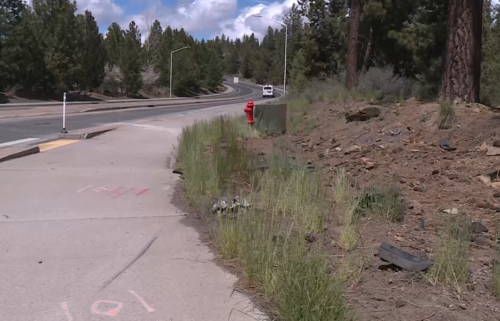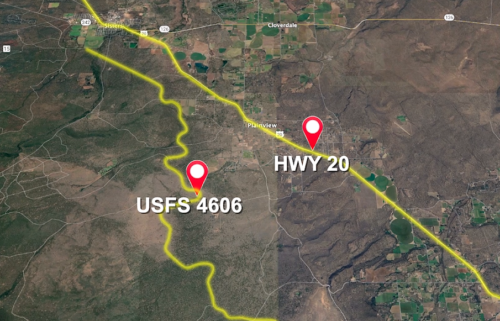Extinction of ancient grazing animals led to rise in wildfires: study
By Tom Yun, CTVNews.ca Writer
Click here for updates on this story
TORONTO, Ontario (CTV Network) — Thousands of years ago, iconic ancient herbivores, such as the woolly mammoth, giant bison and ancient horses roamed the earth and played an important role for the world’s grassland ecosystems. Now, a new study has found that the extinction of these animals may have contributed to an increase in grassland wildfires worldwide.
The study, led by researchers from Yale University and the Utah Natural History Museum, looked at the effects of the late Quaternary extinction, which occurred 50,000 to 6,000 years ago. They published their findings in the journal Science on Thursday.
“These extinctions led to a cascade of consequences,” said corresponding author Allison Karp in a news release. “Studying these effects helps us understand how herbivores shape global ecology today.”
In South America, 83 per cent of the large herbivore species went extinct, the most out of all the continents. North America saw 68 per cent of its species go extinct, while the losses in Australia and Africa were 44 per cent and 22 per cent, respectively.
The researchers set out to see if the extinction of these grazing species could have led to more fires in grassy areas. They believed that a buildup of grass in these ecosystems due to a lack of animals eating the grass could have fuelled an increase in grass fires.
They examined charcoal data from lake sediments taken from 410 sites around the world, which offer evidence of historic fire data. They then compared this data to the percentage of large herbivores that went extinct.
The researchers found that continents that saw more grazers go extinct, such as South America, had larger increases in fire activity. Conversely, Australia and Africa, which saw lower rates of extinction, saw little change in grassland fire activity.
However, the extinction of species that feed on bushes and trees, such as mastodons and giant slots, had little effect on fires in wooded areas.
The authors say their research underscores the important role that grazing livestock and herbivore species play when it comes to mitigating wildfires, as extreme weather events continue to intensify due to climate change.
“This work really highlights how important grazers may be for shaping fire activity,” senior author Carla Staver said in a news release. “We need to pay close attention to these interactions if we want to accurately predict the future of fires.”
Please note: This content carries a strict local market embargo. If you share the same market as the contributor of this article, you may not use it on any platform.
ctvnews.caproducers@bellmedia.ca



